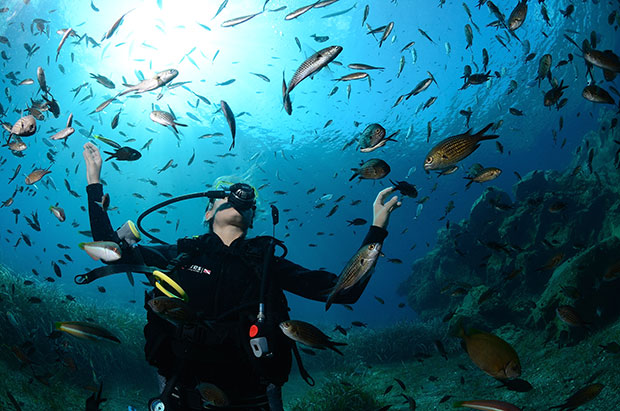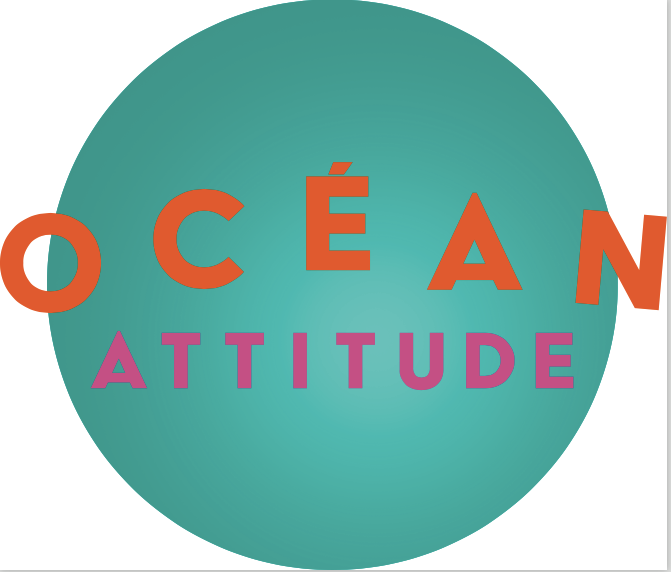I have always loved the sea… It calms me and the underwater world fascinates me. I have visited around forty Greek islands and one thing I always remember is their ‘vythos’ (seabed). Unfortunately, I have observed a severe decline in marine life especially in the Aegean sea and it is heart breaking.
 Pierre-Yves Cousteau ©Kathimerini newspaperPierre-Yves Cousteau, the youngest son of the famous oceanographer and explorer Jacques-Yves, during an interview with the Greek newspaper Kathimerini, confirms the dying marine life of Santorini. He has special bonds with the island as he had his dive instructor training there and visits it at least once a year: “The seabed of Santorini is like a great theatre. The scenery is unique: underwater caves, Posidonia meadows, spectacular formations, steep cliffs and a terrific clarity. But it's an empty theatre with no actors”.
Pierre-Yves Cousteau ©Kathimerini newspaperPierre-Yves Cousteau, the youngest son of the famous oceanographer and explorer Jacques-Yves, during an interview with the Greek newspaper Kathimerini, confirms the dying marine life of Santorini. He has special bonds with the island as he had his dive instructor training there and visits it at least once a year: “The seabed of Santorini is like a great theatre. The scenery is unique: underwater caves, Posidonia meadows, spectacular formations, steep cliffs and a terrific clarity. But it's an empty theatre with no actors”.
The fishermen on the island told him that they took from their parents a sea full of fish, handing over their children a desert. The area has been overfished for decades. Pierre-Yves Cousteau’s suggestion is clear: “It's simple: When you hit your foot, what do you do? You have to rest to recover. The same thing happens with the sea. If we keep it quiet for a while, biodiversity returns. Recently a study was carried out on 120 marine protected areas, 17 of them in the Mediterranean, showing that within just 5 years they have achieved a 450% increase in fish stocks and 20% biodiversity. Funded by the Niarchos Foundation, ELKETHE conducted a study on the state of marine life in Santorini. We suggested two areas, one between Perissa and Kamari and the second one, most wanted by the fishermen around Akrotiri, in the ‘nose’ of Santorini. Unfortunately, the sea of Santorini no longer has fish, and fishermen have to go farther and farther, spend more and more time in the sea to catch less and less fish. When we explained the benefits of the protected areas, the fishermen became our allies and unanimously supported the proposal. The whole island supports it”.
 Sandra Katakalea“How wonderful!”, I thought while reading the article.
Sandra Katakalea“How wonderful!”, I thought while reading the article.
And Pierre-Yves continues: “The Ministry of Rural Development has the opportunity to step forward and adopt the project, to set an example. You know, limiting fishing does not mean that every activity is stopped. There may be ecotourism, mild activities. In the Mentes islands of Spain, where the sea has been protected for 20 years, people come from all over the world and pay a ticket to dive in and see the fish. Santorini's touristic development provides a huge opportunity to finance the protected area”.
My enthusiasm started to fade away. I know that whenever governmental support is required, things slow down… and we know there is no time…
Sandra Katakalea, Senior Performance & Learning Consultant, King Abdullah University of Science and Technology, Saudi Arabia

